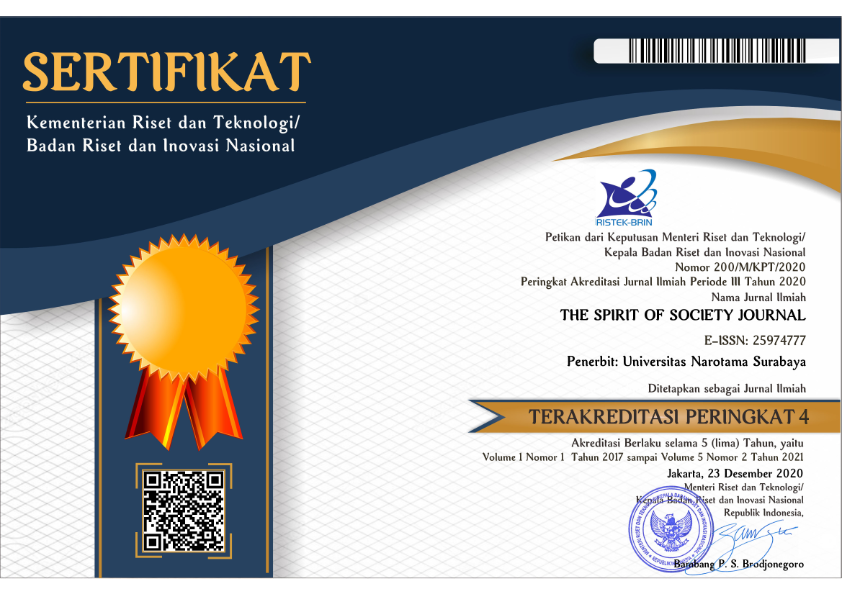Household Waste Management For The Achievement Of SDGs In Bulak Surabaya
Abstract
The purpose of this study was to determine the conduct or description about household waste management in the district of Bulak Surabaya by using studies EHRA (Environmental Health Risk Assessment) where a study of participation in the District / City to understand the conditions of sanitation facilities and hygiene as well as societal attitudes on a scale house stairs. This research was conducted by field observations and interview. District activities and respondents are randomly assigned study area. Based upon the results of research studies EHRA in District of Bulak Surabaya, there are 200 respondents, only a small proportion of respondents who perform household waste management around 19.5%, while those who are not managing 80.5% achievement SDGs taken from point 6 "Water and sanitation" where trash organic collected in TPS (temporary disposal sites) can be treated with an organic fertilizer made so that the waste that goes to landfill (landfill) was reduced by 40 tons a day.












